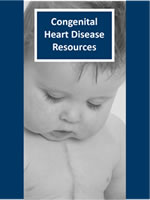Children and Youth with Special Health Needs (CYSHN)
Programs
Contact Info
Atrial Septal Defect
Condition Description
An atrial septal defect (ASD) is a congenital heart condition where there is a hole (defect) in the wall (septum) between the upper chambers of the heart (atria). In early fetal development, the heart starts out as a single tube that gradually differentiates into 4 chambers. Abnormalities can arise at several steps in the process, resulting in defects in the muscular wall that normally separate the atria.
An ASD may not be detected in childhood, but if it is large it is usually apparent by at least 30 years of age. Small ASDs may not be detected until later in life; they will often be detected because of heart enlargement and a specific sound of the heart (fixed split of the second heart sound). Children with symptomatic ASDs may fatigue easily, have rapid breathing with shortness of breath, and grow slowly.
Using data from Minnesota births between 2014-2018, we found 859 babies were born with atrial septal defects, resulting in a rate of 26 babies per 10,000 births. Annually, about 172 babies were born with atrial septal defects.
